![]() SHANGRALA'S
SHANGRALA'S
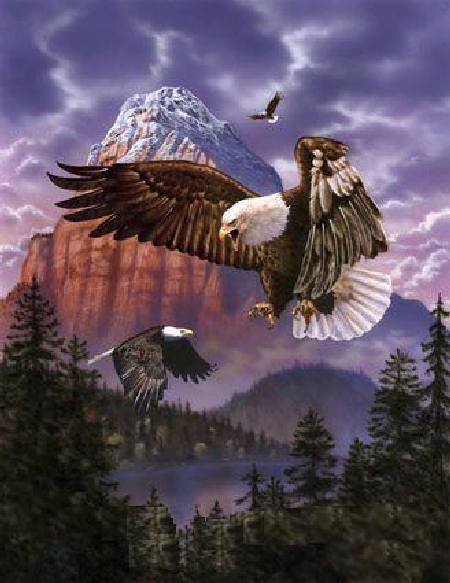
THE
REAL
STORY
OF
THE
EAGLE!

This is the amazing story of our eagle.
The University Of Minnesota Raptor Center is
happy to share with us the natural history of the Bald Eagle. Enjoy! :)
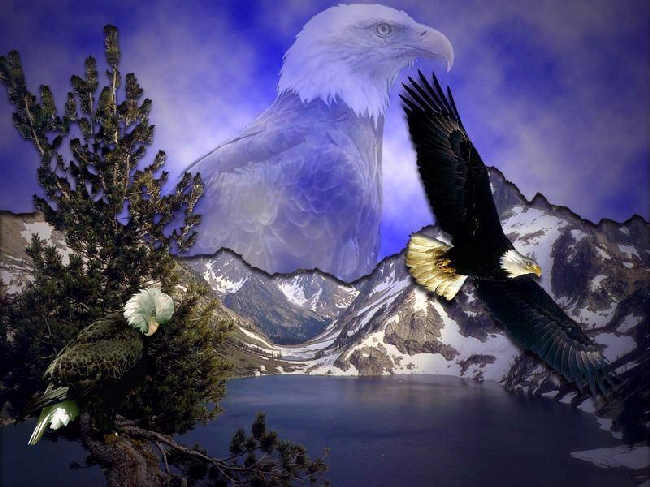
The average life span of an eagle is approximately 30 years.
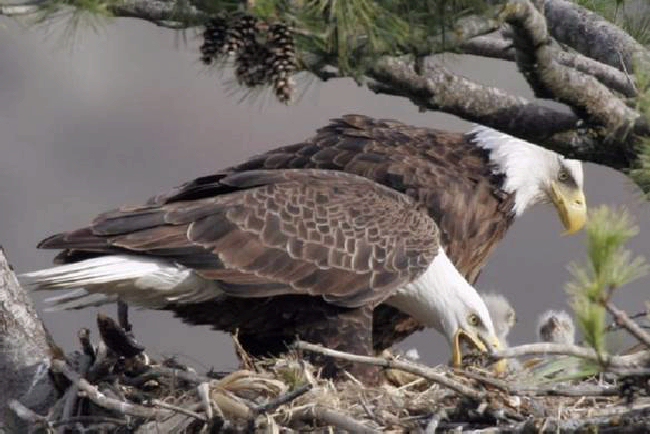
In captivity, an eagle may live beyond what the average
life expectancy is, because it receives both regular and nutritious
meals, has access to veterinary care and can be sheltered from the harsh
elements by housing provided by the facility caring for the bird.
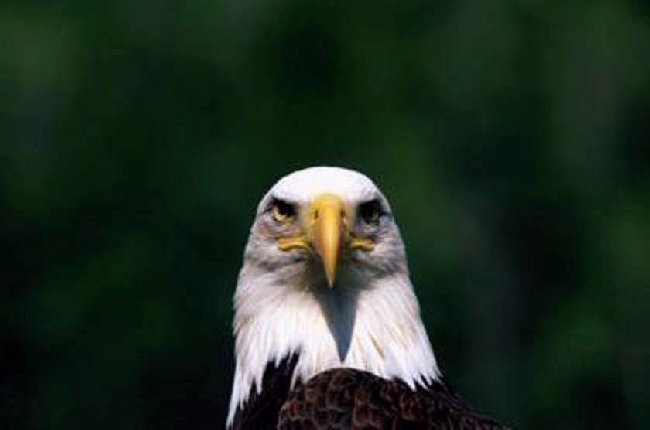
Eagles would not typically
"lose" their beak or talons, unless it was the result of a
traumatic injury. The talons and beak are two of the three best
defining features of what makes these birds "raptors".
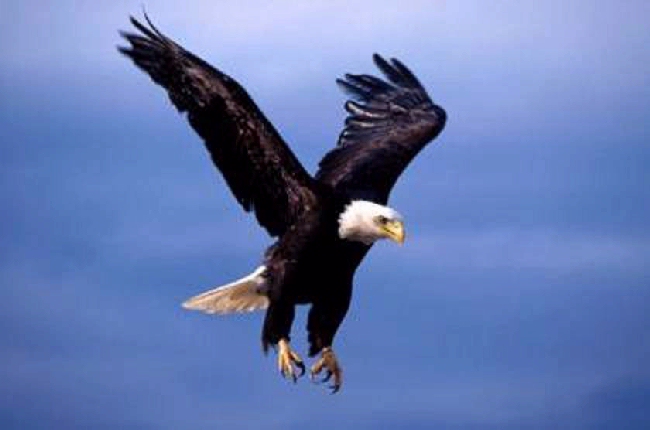
Without the
sharp talons for catching prey and the strong, sharp beak for tearing
food, the raptor would certainly die of starvation.
An eagle hatches with both a beak and talons and these will continue to grow
throughout the bird's life.
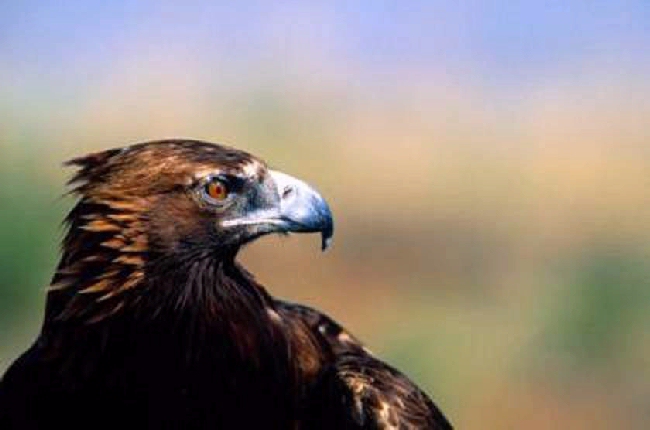
The beak and talons are composed of hard
keratin and are somewhat similar to human fingernails. The talons of
the eagle are not flexible. New layers of keratin
growth build onto the old layers ensuring a strong structure for
the raptor.
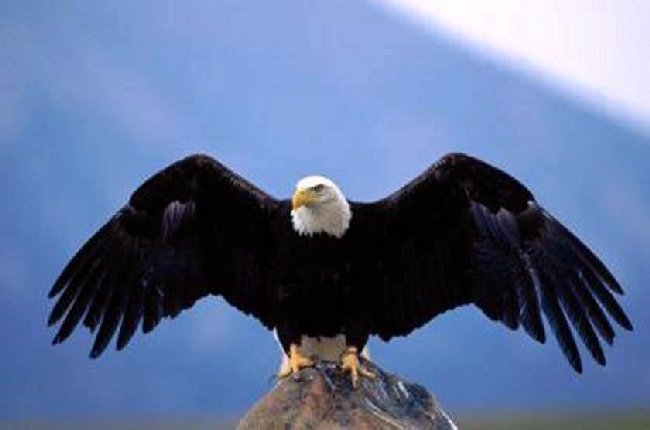
The raptor keeps the beak in good condition naturally
in the wild by eating tough prey and rubbing the beak clean on stones
or other hard surfaces (feaking) after eating.
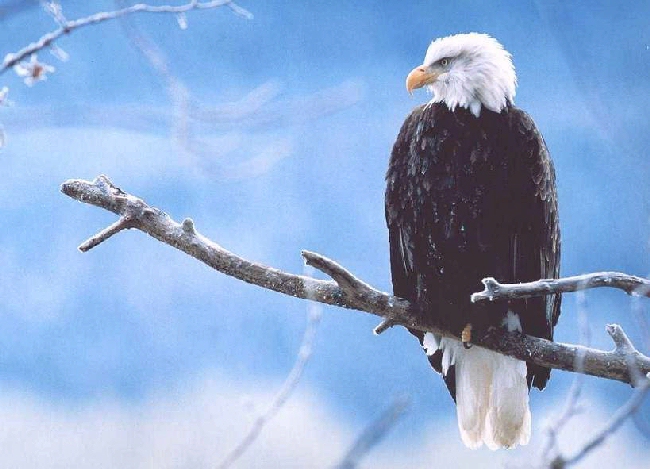
Eagles and other raptors generally do not pluck out their feathers.
All birds, including raptors, do go through a process of losing
feathers and this is called a molt. A bird's feathers do suffer
regular wear and tear so, ultimately, the quality of the feather
will decrease and it will need to be replaced.
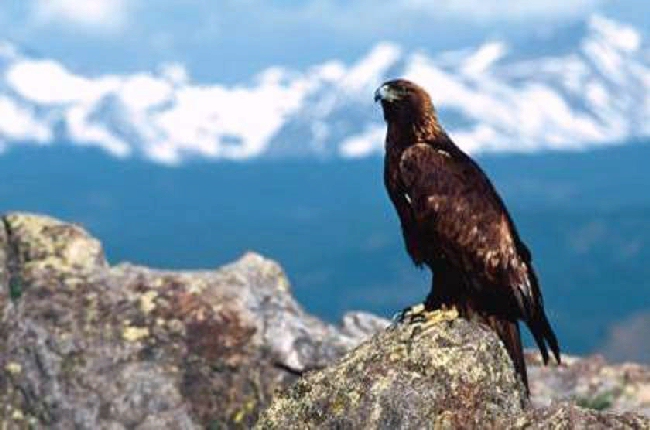
The feathers are not lost all at the same time. If this were true, the
bird would be unprotected from natural elements and more importantly
it would not be able to fly. Eagles and all other raptors need to fly
in order to hunt and survive so the loss of flight would most likely
mean starvation for the bird.
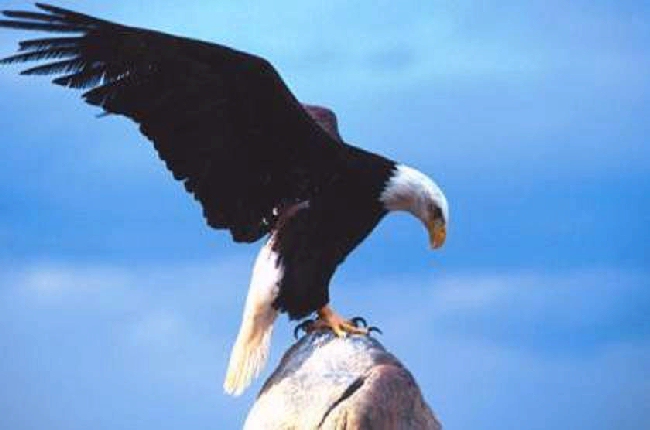
Each feather comes from a feather follicle much like hair
does on a mammal. When the feather is first emerging and developing it
has a blood supply coming from the body going up into the shaft of the
feather. If this feather is broken or pulled out it is not only very
painful for the bird, but could result in blood loss and damage to the
feather follicle. Severe damage to the feather follicle could result
in the permanent loss of the follicle. If a feather is lost before a
molt it could take up to a year to be replaced.
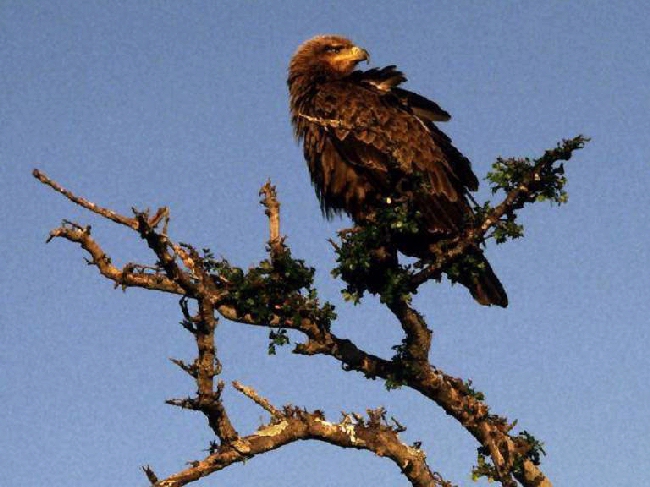
Raptors and all other birds molt in a symmetrical pattern. If a primary
feather is molted on the left wing, the same feather is molted
simultaneously on the right wing. This can ensure balance in flight for
the bird while it hunts during this molting period.
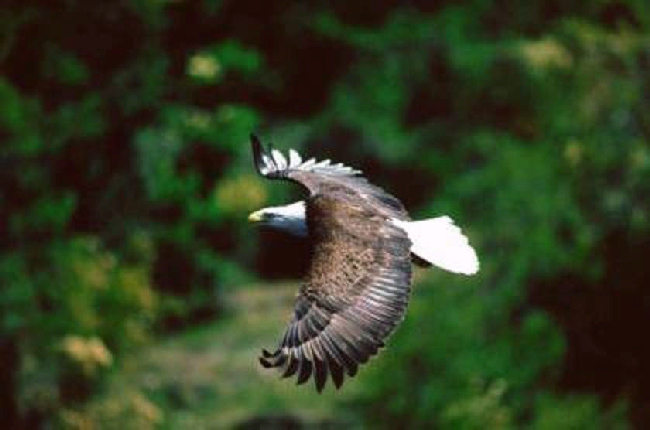
![]()
![]()
SEE ALSO: Eagle Hunters!

^BACK To TOP^

For those of you who Want More FUN - Visit The Shangy Fun List! Variety is the
spice of life! The Shangy Fun List is an ezine packed full of Poems, Inspirational and
Heart Warming Stories. Jokes from G to slightly R, and Anything else that just
might make you SMILE! Join In The Free FUN!! ... :)
Yes! Click Here To GO TO THE ARCHIVES!-
![]()
![]()
Like This Page?
If you are looking for more, here are some good places to start:

Dog Gallery-
Pet Gallery!-
Bear Rescue!-
Giant Catfish!-
Awww Animals!-
Awww Animals 2!-
Great White Shark!-
Bambi & Thumper!-
Why God Gave Us Pets!-
A-Z Animated GIF Images!-


 -To SHANGRALA-
-To SHANGRALA-
SPECIAL THANKS To TONY ILLINGWORTH For This Story Inspiration.
![]()
Copyright © 1996 Netscape Communications Corporation. Mozilla is
a trademark of Netscape Communications Corporation.
Note: This is an Unofficial God, Jesus Christ, Family, & Cartoon Fan Site.
© All graphics representing Disney characters are copyrighted by Disney.
Likewise all other graphics & music Copyright © by their own Individual Artists.
I do not own any graphics on this site. If you do, please notify me
and I'll give
you proper credit, a link, or remove it immediately according to your wishes.
~*~ Copyright © 1997-2008 Elrhea M. Bigham ~*~
